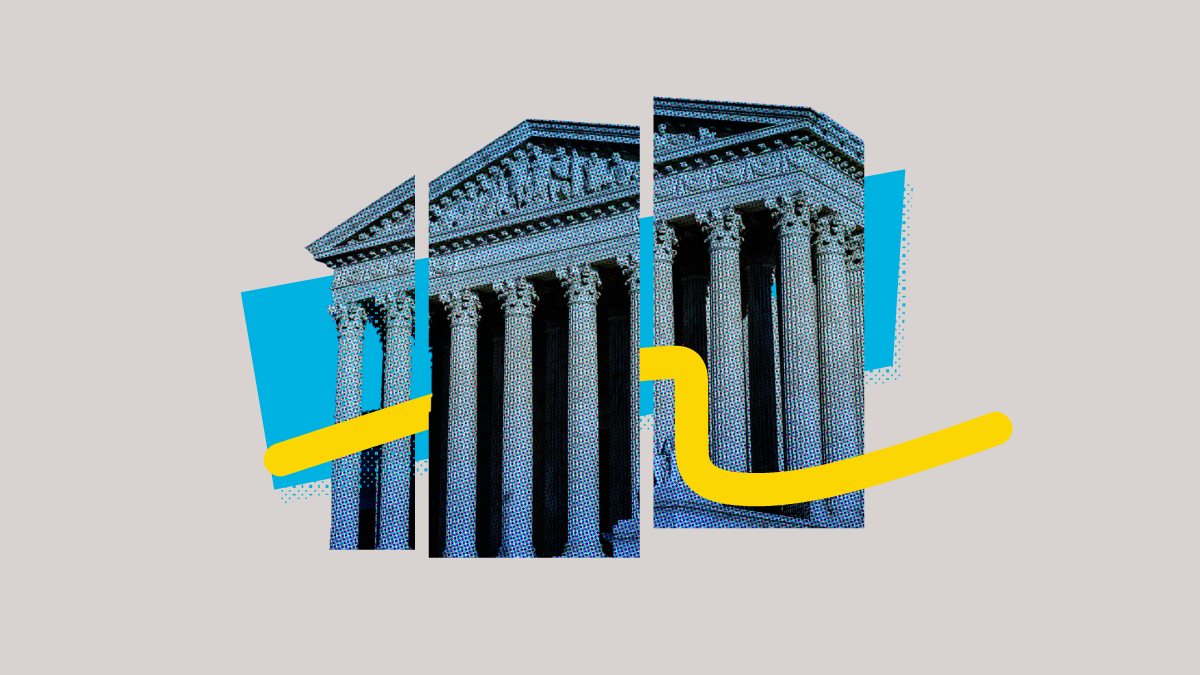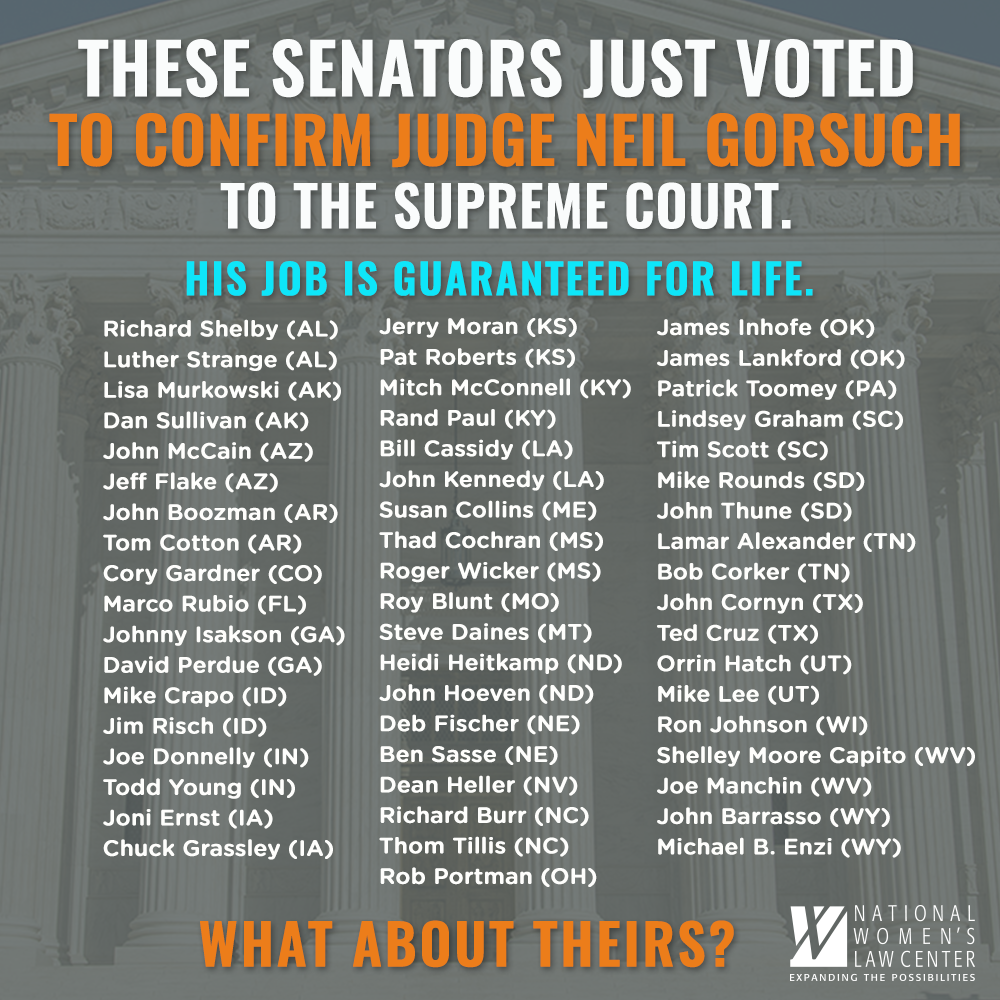This Supreme Court Term, All That’s Old—Like, 1850s Old—Is New Again.

On June 27, 2025, the Supreme Court issued its final opinions of the term, and, once again, the conservative supermajority has wrought havoc on sound legal precedent and denied access to justice for countless people.
As in its legally unjustifiable opinion in Dobbs v. Jackson Women’s Health Organization three years ago, overturning Roe v. Wade, in United States v. Skrmetti, the Court once again reached back into the annals of history to revive ideas about gender and sexuality that harm everyone. The Court’s decisions this term undermine the fundamental legal rights and health care available to women, girls, LGBTQIA+ families, low-income people, and other marginalized people.
To hold the line on remaining protections and mitigate the harm to come, NWLC is committed to an analysis of final opinions and related enforcement. Here are some of the key decisions from this term that will impact gender justice the most:
Kennedy v. Braidwood Management Inc.
While the Supreme Court’s decision leaves intact the ACA provision requiring coverage of preventative health care services without cost sharing, its opinion also made clear that the Secretary of the U.S. Department of Health and Human Services—currently RFK Jr.—has the authority to fire at-will members of the team that provides recommendations about preventative care and to overrule their expert recommendations. That means the Trump administration could undermine the scientific integrity and independence of this team by vetoing new recommendations to cover or expand coverage of some kinds of preventative care, or by filling it with individuals who oppose evidence-based medicine, like vaccines. And we know that when costs for preventive services are high, patients, particularly those who are the most marginalized, forgo care. So, the advances for health equity obtained under the ACA remain at risk.
Mahmoud v. Taylor
The Court held that parents claiming religious objections have a right to pull their kids out of classrooms when teachers read books with LGBTQIA+ characters—a dangerous win for far-right extremists who want to remove marginalized groups from public conversation, prevent the next generation from understanding and valuing the true diversity of this country, and undermine public education. This harmful decision will likely worsen stigma-driven harassment and bullying of LGBTQIA+ students and families. And the door is now open for extremists to misuse religion and claim that it allows them to erode lessons related to any topic they don’t like, sowing fear and division in and out of the classroom.
Medina v. Planned Parenthood South Atlantic
The Court closed the courthouse doors on Medicaid enrollees seeking to vindicate their right to choose their providers. It also effectively greenlit states like South Carolina to continue their mission to defund Planned Parenthood clinics. As a result, tens of thousands of low-income residents will be stripped of access to essential health care services, including wellness exams, birth control, cancer screenings, testing and treatment for sexually transmitted infections (STIs), and more.
Lackey v. Stinnie
The Court seized an opportunity to deny civil rights litigants attorneys’ fee awards when they succeed in resolving their lawsuits via settlement after winning an early order blocking the law or policy that they challenged. Instead, the Court determined that these plaintiffs should not be considered “prevailing parties” under the federal civil rights fee-shifting statute—even though the defendants likely would not have changed their unlawful policies had the plaintiffs not filed their cases. Future potential plaintiffs now face more obstacles to finding legal representation to vindicate their rights.
Trump v. CASA Inc.
The Court limited the nationwide scope of the injunction blocking Trump’s attempt to deny citizenship to children born in the United States to undocumented parents and parents temporarily present in the United States—potentially letting this clearly unconstitutional policy go into effect in some parts of the country. This decision opens the door to a fractured system where a child born in one state is a citizen, while a child born in another is not. The only way left for civil rights advocates and those impacted to fight this fractured application is to spend money and time fighting this one case at a time and one state at a time. This decision also isn’t limited to birthright citizenship—it restricts courts’ ability to protect people when the government engages in widespread violations of their rights, no matter which right. And the Trump administration wasted no time in making clear that it intends to weaponize this opinion against countless existing injunctions blocking its unlawful policies—further entrenching a new, chaotic legal reality that stacks the deck even further against those who cannot afford to vindicate their rights in court.
United States v. Skrmetti
The Court ruled that Tennessee can enforce its ban on gender-affirming health care for transgender youth. This means doctors in the state are prohibited from providing care that has been proven critical for transgender people to thrive and determined to be safe, appropriate, and effective by all major medical associations. And, rather than following well-established sex discrimination precedent, the Supreme Court has once again abandoned sound legal analysis to advance a regressive agenda, just as it did three years ago when it overturned the constitutional right to abortion.
And here’s one more Supreme Court decision that won’t have a big impact on gender justice—no matter what you may have heard:
Ames v. Ohio Department of Youth Services
The Court reversed a precedent from one federal circuit court that required members of a majority group to meet a higher evidence standard to win in a workplace discrimination case under Title VII. The plaintiff in this case, Marlean Ames, is a former state employee who insists that she was the victim of “reverse discrimination” as a straight woman. But—regardless of what some right-wing groups or the media would have you believe—this decision was no sweeping victory for majority plaintiffs or retrenchment on federal legal protections against employment discrimination. Congress enacted Title VII to protect historically marginalized groups from unfair treatment at work, and the law still does that. The Ames decision simply clarified that the same legal standard applies to all employment discrimination claims in court, regardless of who the plaintiff is and whether or not they are a member of a historically disadvantaged group.





